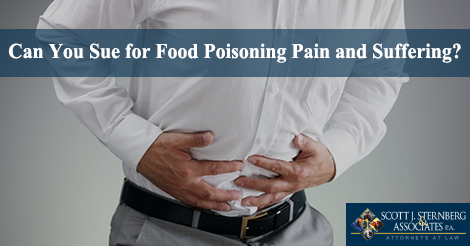Getting food poisoning is a fairly common occurrence—especially during the holiday season when people are preparing food, attending holiday parties, and dining out at restaurants and ordering take out.
Food poisoning can come from improperly prepared foods or foods that have certain bacteria in them such as E. Coli, Hepatitis, or Listeria. The manufacturer or preparer of the food could actually be liable for your injuries following about of food poisoning. Does that mean you should pursue a legal liability claim?
Only an experienced personal injury attorney can answer that question fully for your particular situation, but there are a few things that you should consider: You must have the basics of virtually every personal injury claim—duty, breach, causation, and damages.
Duty: If you are purchasing food from anywhere, the food preparer, packager, or manufacturer has a duty to their customers to provide food that is free from anything that would make you sick.
Breach: If there is something in your food that causes illness, then the food preparer has breached their duty to you to provide food that is safe.
Causation: In order to have a valid personal injury case, you must show that the defendant’s actions actually caused your damages. This can be difficult to prove in a food poisoning case because you need to show that one particular thing that you ate actually caused your illness.
Damages: Damages are by far the most difficult thing to prove in a food poisoning case. However, this element is extremely important in every personal injury case. This is because personal injury law is designed to make the injured party “whole” again by awarding damages. If there are no damages, then the injured party is already whole.
Can I Sue in a Food Poisoning Case?
You can almost always sue in a food poisoning situation. If you can prove all of the elements of a personal injury claim, then you may also be successful. In most situations, however, proving causation and showing extensive damages is extremely difficult in this type of case.
In food poisoning cases, you may get sick temporarily, but in most situations, that will be the extent of your injuries. There are rarely medical bills, and any time off work is likely minimal. Your pain and suffering for one day while the food makes its way through your system is also likely fairly minimal.
Unless you become seriously sick or injured, bringing a case for food poisoning is likely not going to be worth the time and effort that you (and your personal injury attorney) put into it.
Every situation is unique, and your case may be different. Talk to an experienced personal injury attorney to explore all of your options.

